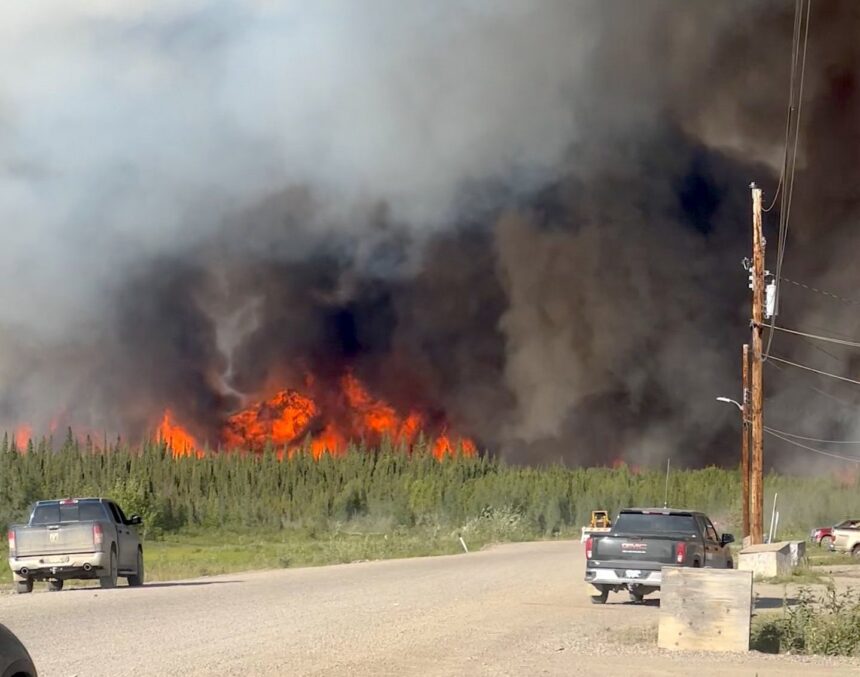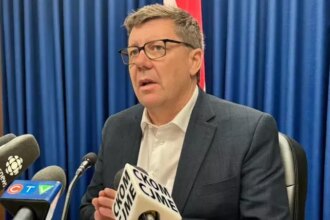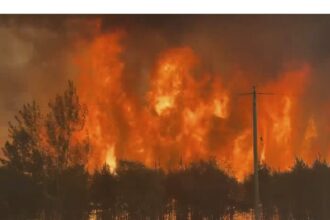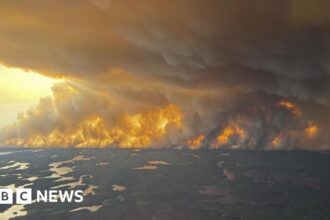As the amber glow of wildfires once again paints Canada’s horizon this summer, a growing coalition of Indigenous fire practitioners is advancing a powerful message: traditional knowledge must be central to our national wildfire strategy, not merely a seasonal afterthought.
“We’re entering the third consecutive catastrophic fire season, yet we continue treating Indigenous fire knowledge as supplementary rather than foundational,” explains Raymond Cardinal, a hereditary fire keeper from the Saddle Lake Cree Nation and founding member of Indigenous Fire Stewardship Canada (IFSC). “Our ancestors managed these landscapes for thousands of years. This isn’t experimental—it’s proven methodology.”
The newly formed IFSC represents fire knowledge keepers from over 40 First Nations across the country who are pushing for year-round implementation of cultural burning practices. Their timing couldn’t be more critical, as Environment Canada predicts above-average temperatures will persist through October across much of western and northern Canada.
Since 2023, wildfires have consumed over 18 million hectares of Canadian forests—an area larger than England and Wales combined. The economic impact exceeds $12 billion when accounting for evacuations, property damage, health costs, and economic disruption, according to analysis from the Canadian Climate Institute.
“What makes Indigenous fire stewardship different is its holistic, preventative approach,” says Dr. Amy Wilson, forest ecologist at the University of British Columbia. “Rather than simply responding to emergencies, traditional practices focus on creating resilient ecosystems year-round through controlled burns that reduce fuel loads while respecting seasonal timing and local conditions.”
The federal government has allocated $256 million toward Indigenous-led fire initiatives in its latest budget, but IFSC members argue the funding model remains problematic.
“The current system forces us to compete for grants with application processes designed around Western scientific frameworks,” notes Melissa Moses, IFSC coordinator from the Lhtako Dené Nation. “We need permanent funding structures that recognize fire keeping as ongoing cultural work, not project-based interventions.”
Several provinces are beginning to incorporate Indigenous practices into their wildfire management strategies. British Columbia signed a landmark agreement with the First Nations Emergency Services Society last month, formalizing collaborative approaches to prescribed burns. Meanwhile, Alberta’s pilot program with four Treaty 6 Nations has shown promising early results in reducing severity of summer wildfires where cultural burns were conducted during spring.
The IFSC is advocating for a national framework that would establish Indigenous fire guardianship programs in every province and territory, with dedicated funding and formal recognition of fire knowledge keepers as certified professionals within Canada’s emergency response system.
“This isn’t about replacing conventional firefighting—it’s about transforming our relationship with fire from one of fear to one of respect and responsible stewardship,” explains Cardinal. “The knowledge exists within our communities. What’s needed is the institutional and financial commitment to implement it year-round.”
Climate scientists confirm that as global temperatures continue rising, Canada’s fire seasons will likely intensify. The question facing policymakers and communities alike is whether we will continue responding to each crisis as it erupts, or embrace the preventative wisdom that Indigenous nations have refined over countless generations.
“Every scorched hectare represents not just environmental damage but a failure to listen,” says Moses. “How many more record-breaking fire seasons will it take before we acknowledge that the original stewards of these lands might hold the solutions we so desperately need?”










